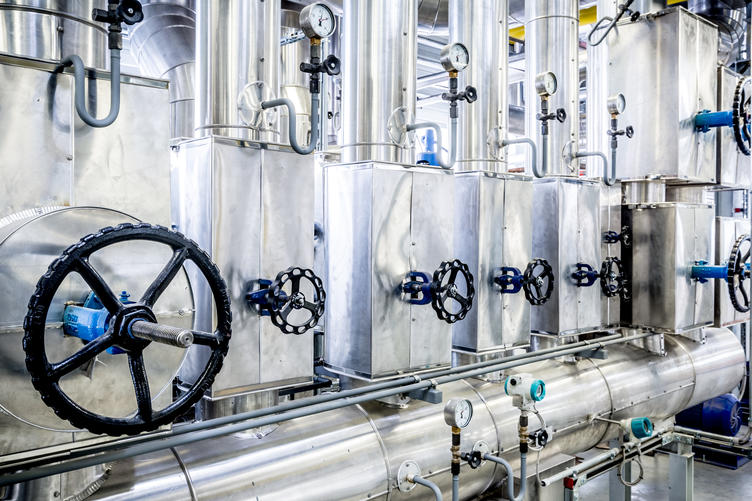The use of waste heat has a very high potential to increase energy efficiency while translating into positive environmental and economic impacts.
In times of growing environmental awareness and increased discussion on sustainability and the related protection of fossil fuels, the topic of energy efficiency is increasingly in the spotlight of the energy industry. The two topics are closely linked.
Among the ways to increase energy efficiency, GETEC specialists suggest modernising and increasing the efficiency of energy generation systems, often finding opportunities to exploit previously undeveloped energy potential, for example in the form of waste heat.
Heat recovery
This is the most efficient and at the same time technologically simplest approach to utilizing waste heat. Waste heat is extracted from the flue gas stream, e.g. via a heat exchanger, and transferred to another medium. The carrier medium can be hot water, thermal oil, steam or a gaseous medium. The recovered heat is transported by the heat carrier medium to the existing heat sinks and used there.
Conversion of waste heat into electricity
Waste heat is converted to electricity according to the heat recovery concept presented above. The heat carrier can be used to convert it into electricity. For the generation of electricity, the technology usually used is water-steam cycle electricity generation using a steam turbine or thermal oil cycle, which is powered by ORC (Organic Rankine Cycle).
Cooling and air conditioning by using waste heat
Waste heat can also be used to cool buildings or process steps. The extracted low-temperature heat can be used in a condensing refrigeration system to produce cold water.
The chill produced in this way can replace conventional compressor refrigeration systems and eliminate their need for electricity.
Utilization of waste heat by means of heat pumps
This form provides raising the temperature level of the utility heat generated by supplying higher value energy to make it useful. The higher-value energy can be electricity or high-temperature heat, which is produced by compressor or sorption heat pumps. The heat generated can be used to meet heating demand or to power manufacturing.
Ecological and economic advantages of using waste heat
From an ecological point of view, usable energy from waste heat is a CO2-neutral energy because no additional primary energy sources are required for conversion. Another ecological aspect is that the resulting usable energy replaces energy from other energy sources that require primary energy sources for conversion.
Substitution of usable energy also has economic implications. By saving the thermal or electrical energy that would have to be provided by alternative generation sources, fuel or electricity costs can be saved. Unlike purchasing energy from public sources, the cost of converting waste heat into usable energy remains calculable over the long term. This reduces dependence on the energy market and the risk of incalculable price increases. In addition, the supply of process heat through the use of waste heat can lead to a reduction in the number of required CO2 certificates, which in turn leads to savings in operation.
GETEC – your partner for industrial waste heat recovery
Industrial waste heat recovery has great potential for increasing the energy efficiency of production processes and reducing fossil fuel consumption. The technologies used by GETEC for waste heat utilization are proven and robust solutions, in line with the state of the art and designed for a long service life. The use of waste heat is a sustainable and environmentally friendly way to save resources and increase energy efficiency.
Feel free to talk to us and benefit from GETEC’s many years of experience!


